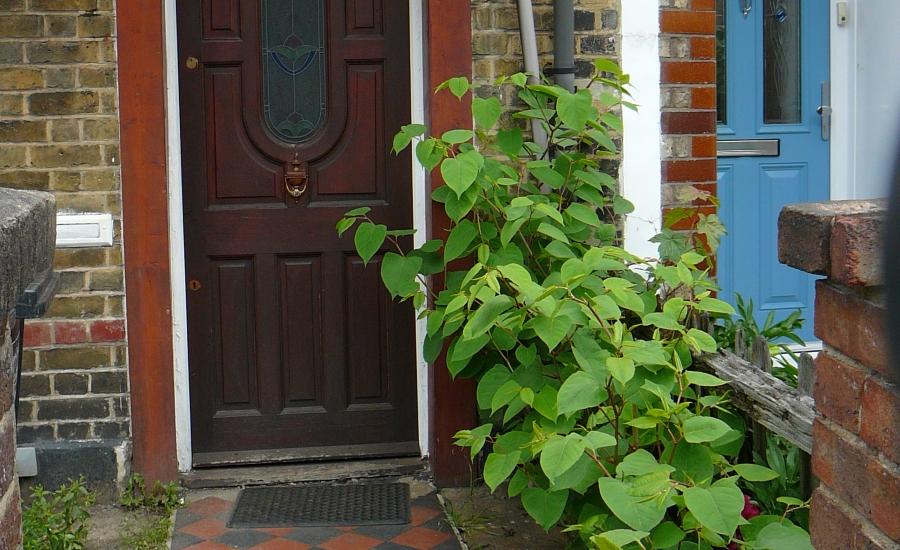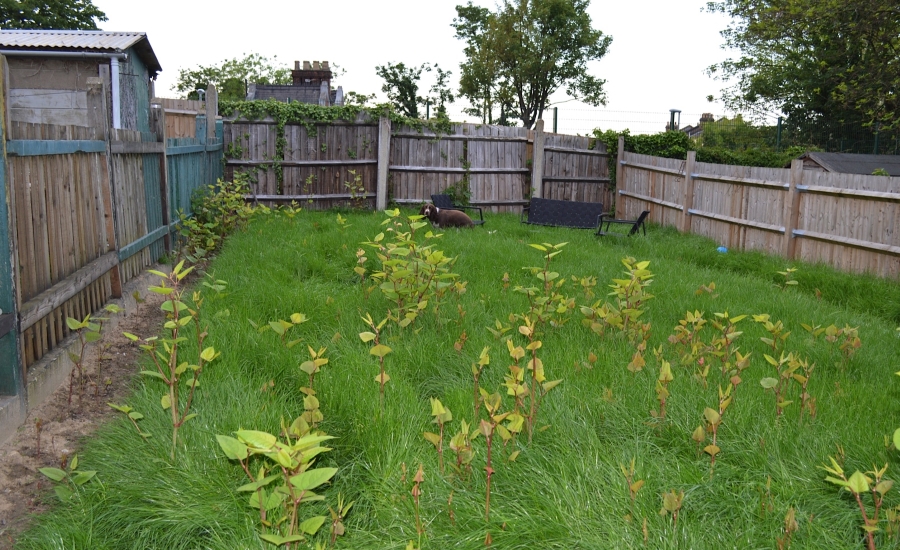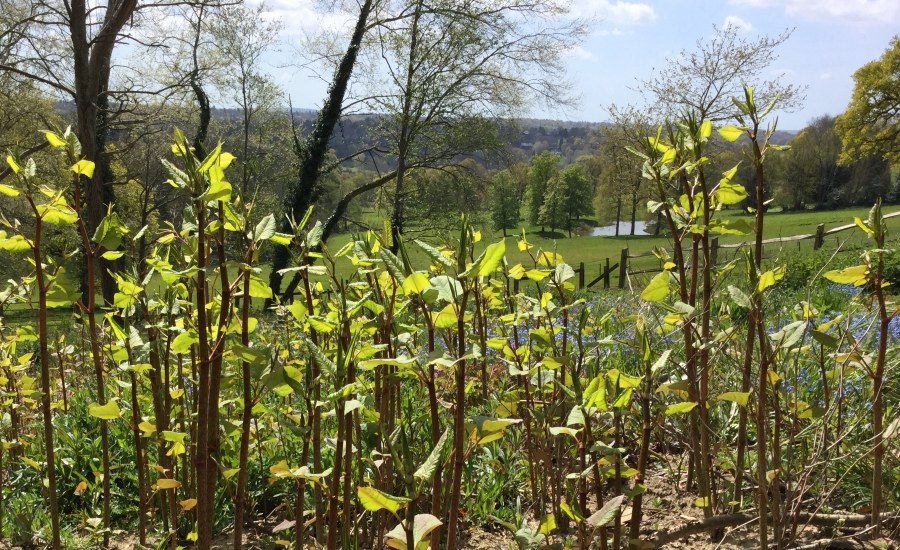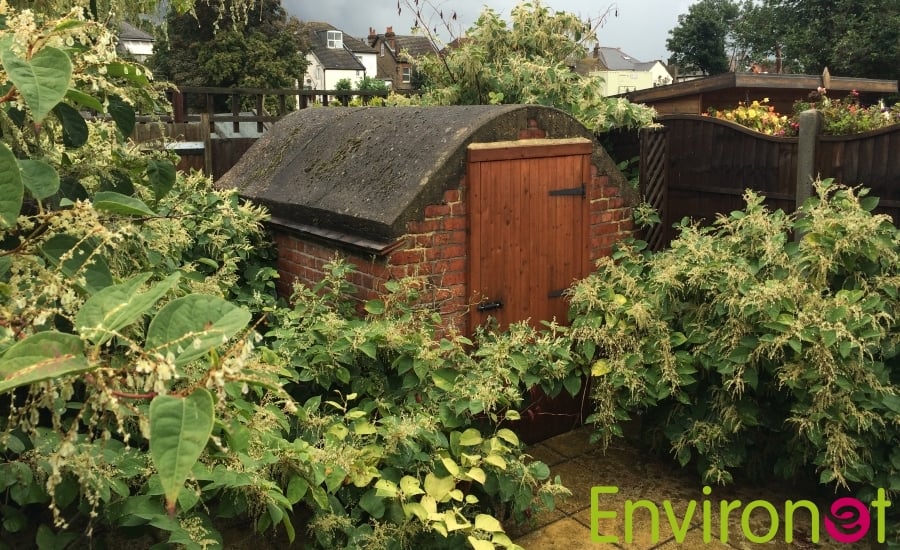Environet UK – a Leading Japanese Knotweed Removal Specialist
Environet specialises in removing Japanese knotweed using eco-innovative methods. Knotweed is now number one on the list of the UK’s most invasive plant species. It has quite rightly earned the reputation as being “indisputably the UK’s most aggressive and destructive plant” (Environment Agency).
Up to 5% of properties nationwide could be affected by knotweed and it is so prevalent that there is not a single six-mile square area where it is not found to be growing.
Originally introduced into the UK as an ornamental plant in the 1840s, the Victorians considered knotweed a beautiful border shrub. Changing its appearance throughout the year, it can be confused with other similar looking plants. It is fully grown by early summer, growing at the incredible rate of up to 10 cm a day from May to beginning of July.
What damage does it cause?
As Nic Seal, Environmental Scientist, founder and MD of Environet explains: “There are all sorts of myths surrounding knotweed and horror stories about it destroying buildings. That’s not entirely true but in its insatiable quest for light and water, it will exploit any weaknesses in a building and cause damage to walls, drains, floors and hard surfaces”.

Japanese knotweed at front door
What if you’re buying or selling a property, or re-mortgaging where knotweed is present?
It is very difficult to obtain mortgage finance on properties with knotweed present, unless it is being tackled by a reputable firm able to provide insurance backed guarantees.
Any property owner looking to sell is obliged to declare its presence. If you don’t get it properly treated you’ll find it difficult to sell or achieve anywhere near the property’s true value. Don’t be tempted to conceal it, this will prove to be an extremely expensive mistake if your buyer decides to sue you for misrepresentation.
How does Environet get rid of Japanese knotweed?
The two main methods we use are:
- Removal using Resi-dig-out™ – for residential properties, or Xtract™ – for commercial sites. These eco-innovative methods can be completed in a matter of days, any time of the year.
- Treatment with herbicides – lower cost but usually takes at least one growing season to achieve eradication and can only be carried out May – October.
A word of caution
For those DIY enthusiasts who attempt to deal with it themselves by cutting it down repeatedly, pouring diesel on it, burning, burying or saturating it with over-the-counter weed killers, be warned. The all-important insurance backed guarantee does not come with DIY methods.

Japanese knotweed in lawn
What guarantees are available?
All Environet eradication methods are fully guaranteed for up to 10 years with insurance backed guarantees underwritten at ‘A’ rated Lloyd’s.
If you are thinking about appointing a company to get rid of your knotweed and they can’t provide you with a guarantee underwritten by a rated insurer, beware!
Indemnity insurance breakthrough in the fight against Knotweed
If you are buying a property and are concerned about the risk of knotweed, there is now an insurance product that can provide protection for you and your lender, to cover the cost of treatment, repairs and any third party claims. Japanese Knotweed Indemnity Insurance is provided by Countrywide Legal Indemnities. We suggest you get advice from your conveyancing solicitor on the suitability of this insurance product.
Cover is also available for existing homeowners wanting peace of mind who do not currently have knotweed and want to protect themselves against any future growth. Visit www.graftoninsurance.co.uk or ring 01932 450 154 for details.
For more information on Environet’s services visit www.environetuk.com or call us on 01932 868 700.

Japanese knotweed new shoots
Latest posts by Sally - Silversurfer's Editor (see all)
- Freezing this Christmas, a charity single could hit the number one spot - December 20, 2024
- Theatre tickets from £10 for 50+ London shows with See It Live in 2025 - December 19, 2024
- Should Waspi women be entitled to compensation? - December 17, 2024
- What was your favourite childhood toy? - December 17, 2024
- It’s never too late to play bridge - December 15, 2024





















